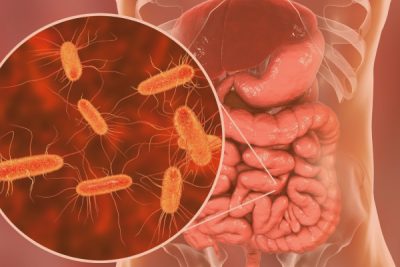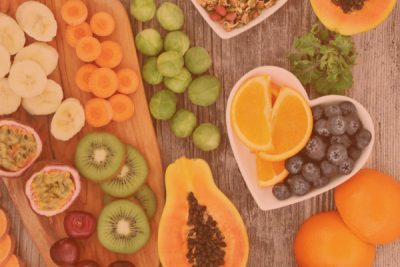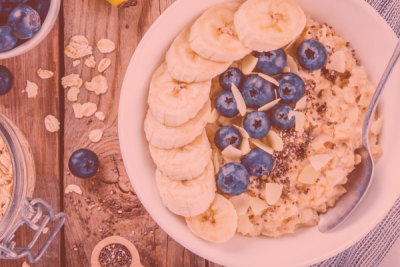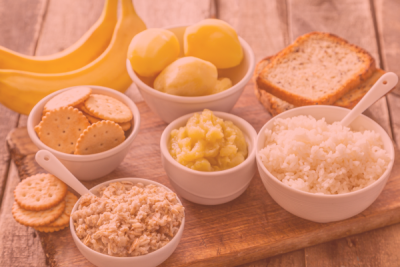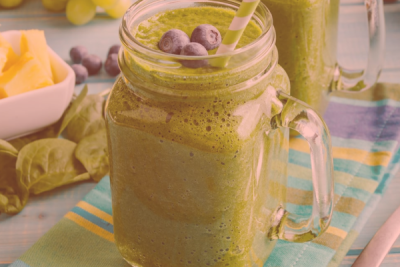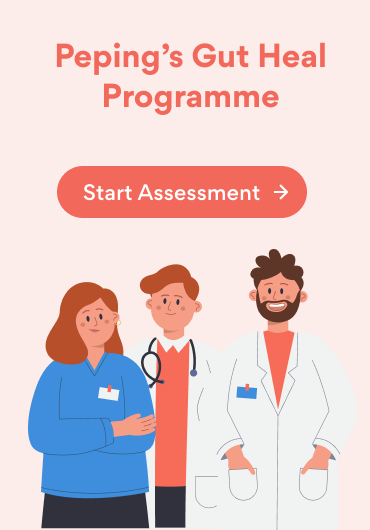Can plant-based diets heal your gut?
If you are regularly experiencing digestive problems like an upset stomach, diarrhea, or constipation, you may want to examine your diet. Dietary habits are known to contribute to the health of the intestines or gut, affecting the composition as well as functionality of the microbial composition.
In recent times, the spotlight has shifted towards maintaining gut health for overall well-being. Plant-based diets, such as vegan and vegetarian diets have garnered significant attention since they help foster a diverse and thriving gut microbiome.
Studies have reported that adopting a plant-based diet can offer a multitude of benefits, ranging from improved digestion, enhanced nutrient absorption, reduced inflammation, and strengthened immune function.
Plant-based diets such as Mediterranean diets can reduce the incidence of diabetes, obesity, cardiovascular disease, rheumatoid arthritis, and cancer. Furthermore, plant-based diets can improve mood, mental health, weight control, hormonal balance, and complexion.
Diet and the Microbiome
There are hundreds of different species of bacteria living in and on our bodies – an estimated 40 trillion microbes in fact – and most of these live in our gut. Collectively, they are known as the gut microbiome. The gut is now referred to as the ‘second brain.’
A delicate balance of both good and bad microorganisms must be maintained in the gut to stay in good health because when it’s disrupted, it can upset your gut health and lead to the development of certain diseases.
Consuming plant-based foods modulates the gut microbiome, increasing the growth of good bacteria in your gut while inhibiting bad or pathogenic bacteria, and keeping your body in homeostasis.
What is a plant-based diet?
A plant-based comprises whole, unprocessed, plant-sourced foods, including the following including the following:
- Vegetables
- Fruits
- Legumes (beans, peas, and lentils)
- Nuts and seeds
- Whole grains (quinoa, oats, and brown rice)
Eating a plant-based diet involves reducing your intake of refined sugar, natural sweeteners, saturated fats, and highly processed foods such as bread, rice, pasta, and animal products such as dairy, eggs, and red meat.
Gut-Healing Components of Plant-Based Diets
Studies have shown eating a plant-based diet can improve gut health in as little as 5 days. In addition, a plant-based diet may also reduce uncomfortable digestive problems such as abdominal pain, diarrhea, and constipation.
Plant-based foods are packed with vitamins, minerals, and nutrients that are beneficial for your health. One of the greatest predictors of good gut health is a variety of antioxidant-, phytonutrient- and fiber-rich foods, and plants provide most of them.
Fiber: The Microbial Feast
The most notable feature of a plant-based diet is its high fiber content. Fiber is naturally found in plants and is made up of carbohydrates that cannot be digested or absorbed by the human body. While we cannot digest fiber, they are a rich source of food for our gut bacteria.
Fiber improves microbial diversity in the gut, adds bulk to your stool, and prevents constipation. Therefore, eating plant-based foods rich in fiber can improve the regularity of your bowel movements.
Dietary fiber is fermented by particular genera of bacteria and results in the production of short-chain fatty acids (SCFAs), such as acetate, propionate, and butyrate. The SCFAs are important for the regulation of metabolism, inflammation, and disease. SCFAs also provide energy for cells in the intestines called colonocytes, alter the intestinal pH, and improve intestinal permeability. In addition, SCFAs have been related to the control of satiety and food intake.
High-fiber foods include the following:
- Beans
- Oats
- Lentils
- Vegetables
- Seeds
- Nuts
- Whole wheat
Prebiotics: Feeding Good bacteria
Some forms of fiber act as prebiotics — Prebiotics are good for the gut microbiome since they act like a microbial fertiliser, and selectively nourish good or beneficial bacteria. Prebiotics can also reduce the growth of bad bacteria in your gut.
Some foods that are high in prebiotics include:
- Garlic
- Onions
- Asparagus
- Cabbage
- Bananas
- Lentils
- Whole grains
- Chick pear
- Jerusalem artichokes
Studies have shown that diets low in fiber weaken your immune system and make you more susceptible to the development of chronic inflammatory diseases. The American Heart Association recommends eating 25-30 grams of fiber daily from food.
Try to incorporate more fiber into your daily diet to improve your gut health. But you should add these foods in small amounts to build up your tolerance. Eating too much fiber too quickly can lead to excess gas and bloating.
Phytochemicals
The role of phytochemicals in modulating the gut microbiome, particularly polyphenols is notable.
Polyphenols are bioactive compounds found in plant foods. Like fiber, polyphenols resist digestion. They pass through the small intestine without being absorbed and are then metabolized by microorganisms in the gut.
Polyphenols increase the growth of healthy bacteria and decrease the growth of disease-causing bacteria. In addition, they possess antioxidant, anti-inflammatory, and immuno-modulating properties.
Remarkably, polyphenols have also been shown to prevent cancer and cardiovascular diseases, reduce inflammation, and improve blood flow.
Some foods that are high in polyphenols include:
- Vegetables
- Blueberries
- Strawberries
- Red wine
- Coffee
- Tea
- Peanuts
Probiotics
Another way to increase good bacteria in your gut is to eat plant-based foods that contain probiotics. Probiotics are live bacteria or yeast that improve gut health. They are commonly found in fermented foods.
Healthy sources of probiotics include:
- Yoghurt
- Miso
- Sauerkraut
- Kimchi
- Tempeh
- Water kefir
Other aspects of plant-based diets
- In plant-based diets, the fat content of the diet is predominantly obtained from unsaturated fatty acids which contribute to reducing inflammation in the gut.
- Omega-3 polyunsaturated fatty acids (PUFAs) which are associated with plant-based foods (avocados, seeds, and nuts) may reduce inflammation through three main pathways: (1) mediating immune cell activation, (2) reducing the precursors of inflammation, and (3) altering the expression of inflammation-related genes.
- The consumption of plant-based diets avoids excessive consumption of meat which results in the formation of trimethylamine (TMA) that is converted into trimethylamine N-oxide (TMAO). High TMAO is predictive of increased cardiovascular risk. A reduction in the intake of L-carnitine and choline which are present in animal sources such as eggs, milk, liver, meat, shellfish, poultry, and fish could result in in cardiovascular benefits.
Final thoughts
Plant-based diets may promote the increase in commensal bacteria and decrease pathogenic types due to the high content of dietary fiber, phytochemicals, and polyunsaturated fatty acids. Plant-based diets offers can improve your gut health as well as your overall health by restoring gut microbial balance and increasing the abundance of good bacteria.
A healthy microbiome is a diverse microbiome and a plant-based diet is the best way to achieve this. Plant-based diets are most beneficial for your gut health in combination with lifestyle modifications such as reducing stress and regular exercise. In addition, one should limit alcohol intake and avoid excessive antibiotic use.
When planning a meal, it’s helpful to think in terms of thirds. A third of the plate should be vegetables, a third should be lean protein sources, and a third should be complex carbs, such as sweet potatoes, beets, quinoa, bran, and oats. There’s also room for healthy fat, such as olive or avocado oil.
Embarking on a plant-based diet journey can be a transformative step towards enhancing your gut health. However, it is important to make informed choices to ensure that you meet your nutritional requirements. Consulting a healthcare professional before making significant dietary changes is advisable.
Plant-based diets can be a game-changer for your gut health.



